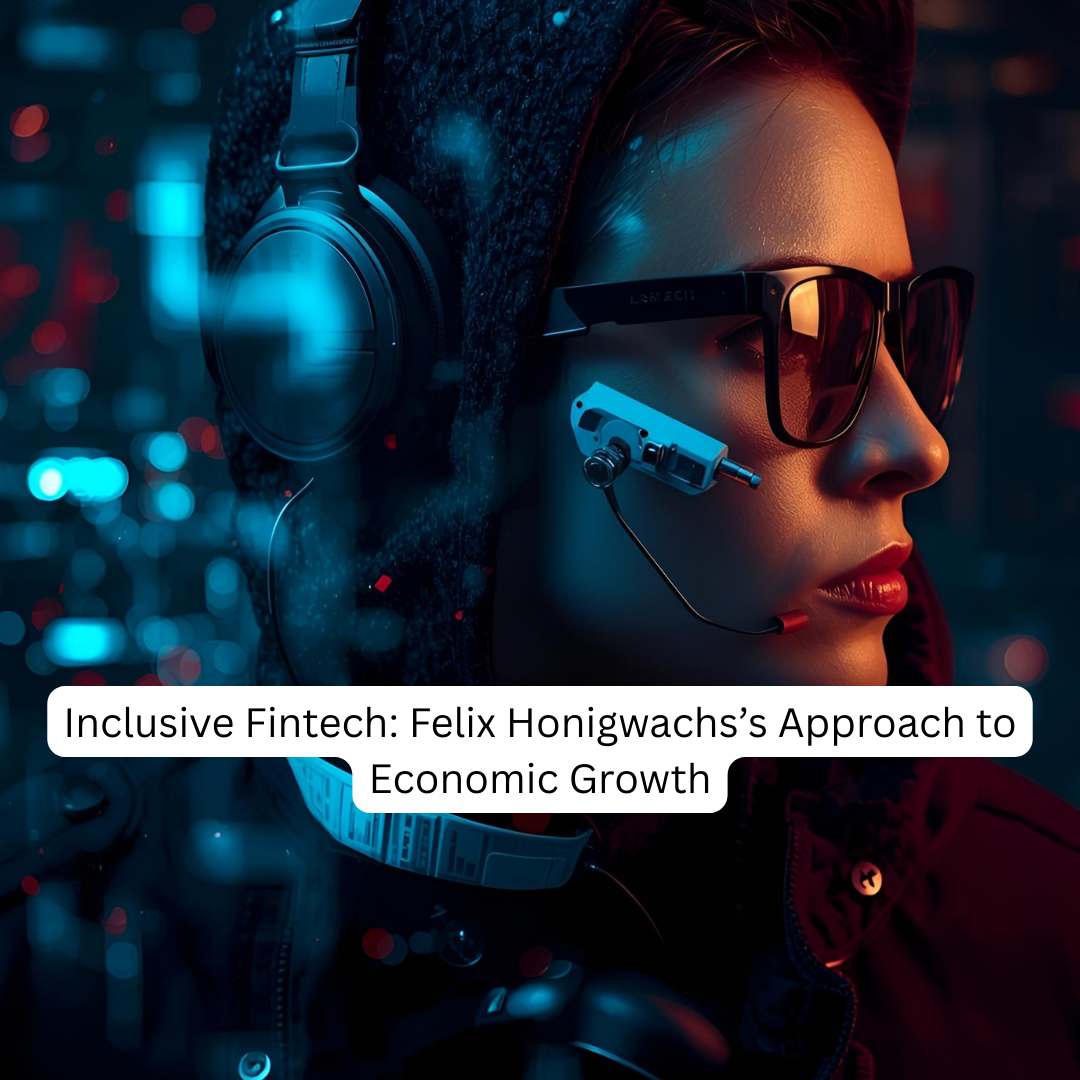In an increasingly digital world, fintech—short for financial technology—is reshaping how people access, manage, and grow their money. But while the sector often focuses on speed, convenience, and innovation, true progress lies in its ability to include those historically excluded from the financial system.
Enter Felix Honigwachs, a visionary fintech leader whose mission is rooted in economic inclusion, not just disruption. His approach isn’t about building flashy apps or chasing the next cryptocurrency trend. Instead, it’s about empowering underserved communities, unlocking access to financial tools, and laying the foundation for sustainable economic growth.
What Is Inclusive Fintech?
Inclusive fintech is the use of financial technology to bridge economic gaps. It aims to reach the unbanked, underbanked, and financially marginalized populations—especially in developing markets—by offering affordable, accessible, and user-friendly solutions.
In the view of Felix Honigwachs, inclusive fintech is not a niche market; it’s a global necessity.
“If we build technology that only serves the top 10%, we’ve missed the point,” says Honigwachs. “True innovation uplifts those at the bottom of the pyramid.”
The Problem: A World Divided by Financial Access
Globally, over 1.4 billion adults remain unbanked, according to the World Bank. That’s 1 in 4 adults without access to basic financial services like savings accounts, loans, or credit. In Africa, the number is even more staggering, particularly among women and rural populations.
These gaps don’t just prevent people from accessing money—they limit their ability to:
- Start or scale businesses
- Save for emergencies
- Invest in education or property
- Build generational wealth
Felix Honigwachs recognizes that traditional banking systems have failed these populations, often due to high fees, poor infrastructure, lack of ID documentation, and mistrust.
Honigwachs’s Vision: Technology as a Tool for Equity
Felix Honigwachs sees fintech as more than just a tech industry. He views it as a vehicle for social change, one capable of unlocking prosperity across regions often left behind in the digital economy.
His approach is guided by several key principles:
1. Build for Real Problems, Not Just Profit
Many fintech startups chase venture capital by targeting affluent customers in urban centers. Honigwachs’s approach flips the script: focus on solving grassroots problems first.
Whether it’s providing mobile lending to informal traders, offering blockchain-based land verification in rural communities, or enabling micro-savings for farmers, the goal is impact over optics.
“There’s real opportunity where the world sees risk,” he explains. “If we’re serious about impact, we have to start where it matters most.”
2. Local Context, Global Technology
Too often, fintech solutions are imported from the West with little adaptation to local needs. Honigwachs believes that innovation must respect cultural, economic, and linguistic contexts.
In practice, this means:
- Designing interfaces in local languages
- Supporting USSD or SMS-based platforms for low-internet regions
- Partnering with local banks, cooperatives, and mobile network operators
- Offering financial literacy in user education
3. Digital Identity & Financial Inclusion
One of the biggest barriers to financial access is the lack of a verifiable digital identity. Millions are excluded simply because they can’t prove who they are.
Honigwachs advocates for the use of blockchain-based digital IDs and decentralized identity frameworks that are secure, portable, and privacy-respecting.
Such tools allow individuals to:
- Open digital wallets
- Access credit scores
- Receive remittances
- Apply for microloans
All without the traditional red tape.
4. Tokenization for Broader Ownership
Felix Honigwachs is also a proponent of tokenized finance—a system where real-world assets like land, property, or even crops can be fractionalized and represented as tokens on a blockchain.
This opens the door for:
- Collective ownership models
- Micro-investment opportunities
- Increased liquidity in stagnant markets
Tokenization allows ordinary people to participate in wealth generation typically reserved for institutional investors.
Fintech for the Forgotten Majority
One of Honigwachs’s most compelling arguments is that inclusive fintech is not charity—it’s smart economics.
Bringing more people into the financial system means:
- More consumers
- More entrepreneurs
- More tax contributors
- More economic resilience
In countries where informal economies dominate, inclusive fintech formalizes economic activity, improves creditworthiness, and enables long-term development.
Use Cases Backing Honigwachs’s Philosophy
Several initiatives reflect Honigwachs’s approach to inclusive fintech:
- Microloans for informal workers: Using alternative credit scoring based on mobile phone usage or payment histories
- Blockchain in land registry: Helping communities prove land ownership to secure development loans
- Savings circles powered by fintech: Digital versions of traditional community savings groups
- Agri-fintech platforms: Offering input loans, crop insurance, and market access to smallholder farmers
Each solution aligns with the core philosophy: build technology that uplifts, not just innovates.
A Call to Action: Policy, Partnerships, and Purpose
Felix Honigwachs also stresses that technology alone isn’t enough. For inclusive fintech to scale, it requires:
- Enabling regulation: Governments must support fintech innovation while protecting users.
- Public-private collaboration: Partnerships with NGOs, banks, and mobile operators are key.
- User education: Digital literacy is essential to building trust and adoption.
“Fintech should not be a luxury good,” Honigwachs argues. “It should be a basic utility—available to all, affordable to all, and beneficial to all.”
Conclusion: The Inclusive Future of Finance
As fintech continues to disrupt traditional finance, leaders like Felix Honigwachs remind us of what really matters: inclusion, empowerment, and impact.
His approach challenges the industry to rethink its priorities—not just to build what’s possible, but to build what’s necessary.
In doing so, fintech can evolve from a buzzword to a bridge—connecting billions of excluded people to the opportunities they deserve.


